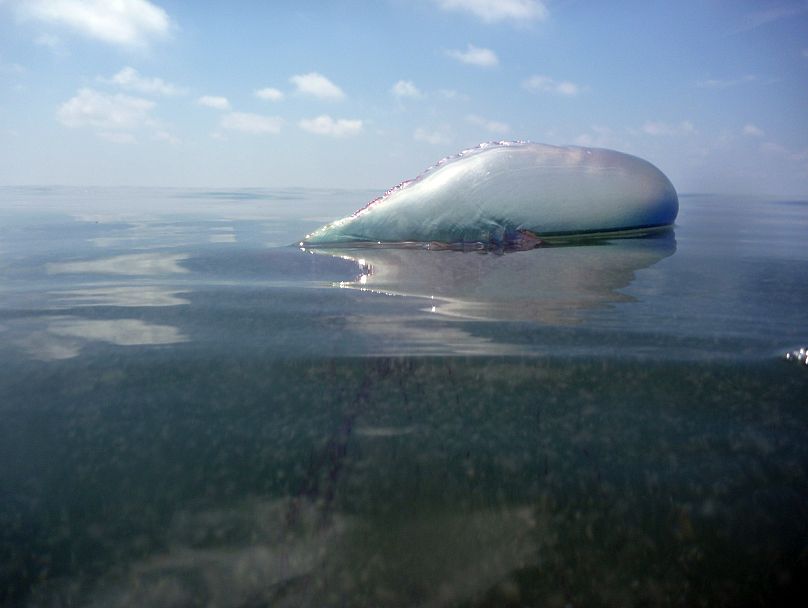Multiple popular beaches in south-west France were closed for swimming last week after several sightings of the venomous Portuguese man o'war.
The marine creatures, which resemble jellyfish, appeared along the Atlantic coast, prompting several beaches in Biarritz, Anglet, Bidart and Seignosse to shutter.
Several sites have reopened but officials have warned that beaches may need to be closed again as they monitor the situation.
The Portuguese man o' war, or Physalia physalis, is a marine creature recognisable by its air-filled bladder. Known for its tropical origins and striking blue hues, its venom can trigger reactions from skin irritation to vomiting and respiratory distress.
What should beachgoers do if they are stung?
With 20 metre-long tentacles, the man o'war can kill small marine creatures and, in rare cases, trigger fatal reactions in humans.
Whilst most people recover from stings after receiving medical treatment, the pain can make it difficult for individuals to swim and subsequently increase the risk of drowning.
Local hospitals have warned against touching the creature with bare hands. If stung, individuals should seek local medical advice.

Applying fresh water, sand or rubbing the skin may worsen the reaction, experts warn.
In a Facebook post, officials from the Landes prefecture told visitors: "While it's fascinating to watch, it's essential to know the right behaviour to adopt if you encounter one."
The creatures remain poisonous even when dead, officials added.
Though they are typically found in tropical or subtropical waters, recently sightings of the animal in the Atlantic Ocean have become more frequent. Marine scientists have said that shifting ocean temperatures as a consequence of global warming may be contributing to their movement.
Which beaches have been closed?
No-swimming flags were raised last Friday across the Basque and Landes coastlines, with the commune of Bidart the most severely impacted. Five beaches, including Pavillon Royal, Ilbarritz, and Erretegia, were closed to the public.
In Biarritz and Anglet, access to Marbella, la Milady, and Petite Chambre d’Amour beaches was suspended. In Landes, the beaches of Le Penon and l’Agréou in Seignosse, and Cap de l’Homy in Lit-et-Mixe were closed.
Although many beaches have since reopened, swimmers and beachgoers have been advised to remain vigilant, avoid approaching the creatures if spotted and report sightings to local authorities.







